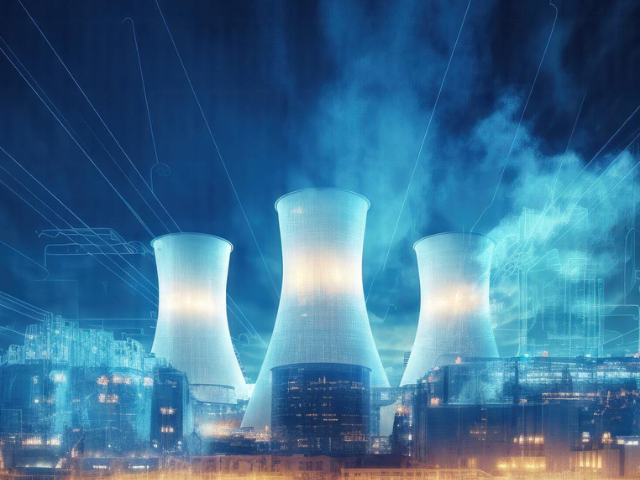


India has taken one of its boldest policy decisions in decades—opening the nuclear energy sector to private companies. For a country that has traditionally guarded its nuclear program under strict government control, this moment marks a turning point not just for energy policy but also for the future of India’s stock market, infrastructure development, and industrial growth.
In this blog, we break down what this policy shift means for investors, industries, and India’s long-term clean-energy roadmap.
For years, India’s nuclear capacity has remained limited due to funding constraints, lengthy project timelines, and the government’s sole responsibility over reactor development. While India has ambitious targets—500 GW of non-fossil capacity by 2030 and net-zero by 2070—the pace of growth in nuclear energy has remained modest.
Allowing private sector participation can change this dynamic in several ways:
Private companies bring capital efficiency, faster execution, advanced technology tie-ups, and global expertise—factors that can significantly reduce project delays.
India still relies heavily on coal for power. Expanding nuclear capacity strengthens energy security and diversifies India’s base-load power mix.
Nuclear reactors demand specialized components such as control systems, heavy forgings, reactor vessels, fuel-cycle machinery, and high-precision alloys.
This creates opportunities across multiple sectors.
According to the policy outline reported by national media, including the Times of India:
India’s regulatory ecosystem—primarily AERB (Atomic Energy Regulatory Board) and DAE (Department of Atomic Energy)—will continue to supervise all safety and operational compliance.
Opening nuclear energy to private sector players is likely to create ripple effects across several industries. Let’s look at some of the biggest beneficiaries.
Companies involved in heavy engineering, reactor components, and EPC projects may see rising order flows.
India’s ongoing infrastructural push through Make in India fits well with nuclear expansion.
Additional demand for:
will boost the broader power equipment ecosystem.
Nuclear power relies on specialized chemicals, gases, and components such as zirconium alloys and precision tubes.
As India scales both solar and nuclear, hybrid power parks—pairing baseload stability with renewable generation—could gain traction.
Large capital-intensive projects will require long-term funding, benefiting banks, NBFCs, and infrastructure financing platforms.
Policy reforms in energy and infrastructure often trigger major sectoral rotations. Nuclear opening could:
Historically, nuclear announcements have boosted sentiment for companies linked to heavy engineering, precision manufacturing, and energy infra.
Just like renewables and green hydrogen became hot themes in recent years, “Nuclear Infrastructure” may become the next long-term story.
Reliable baseload power is essential for industrial expansion, manufacturing competitiveness, and GDP growth—creating a positive environment for equity markets.
While the announcement is transformative, investors must keep a few points in mind:
As always, structured research and professional guidance can help investors navigate emerging opportunities with clarity and discipline.
Swastika Investmart, with its SEBI registration, analytical tools, and investor-education driven approach, offers investors support in evaluating new market themes like nuclear energy.
To accelerate capacity expansion, reduce delays, attract global investment, and support its long-term clean energy targets.
They may do so in partnership with government entities under strict regulatory supervision. The government will retain control over strategic and safety-sensitive areas.
Engineering, capital goods, nuclear components, specialty chemicals, power transmission, and infrastructure financing.
No. Nuclear power is a long-term theme. Near-term movements will depend on policy clarity, tenders, and global partnerships.
Government notifications, project announcements, international collaborations, and company-specific capacity expansions.
India’s decision to open its nuclear energy sector to private companies marks a major milestone in the country’s energy evolution. This move can potentially strengthen India’s power security, accelerate infrastructure development, and create new investment opportunities across engineering, chemicals, and energy technologies.
For investors looking to explore emerging themes with strong long-term potential, professional guidance and research-backed decisions are essential.
If you're ready to explore such opportunities with expert support, you can open an account with Swastika Investmart here:


Trust Our Expert Picks
for Your Investments!



